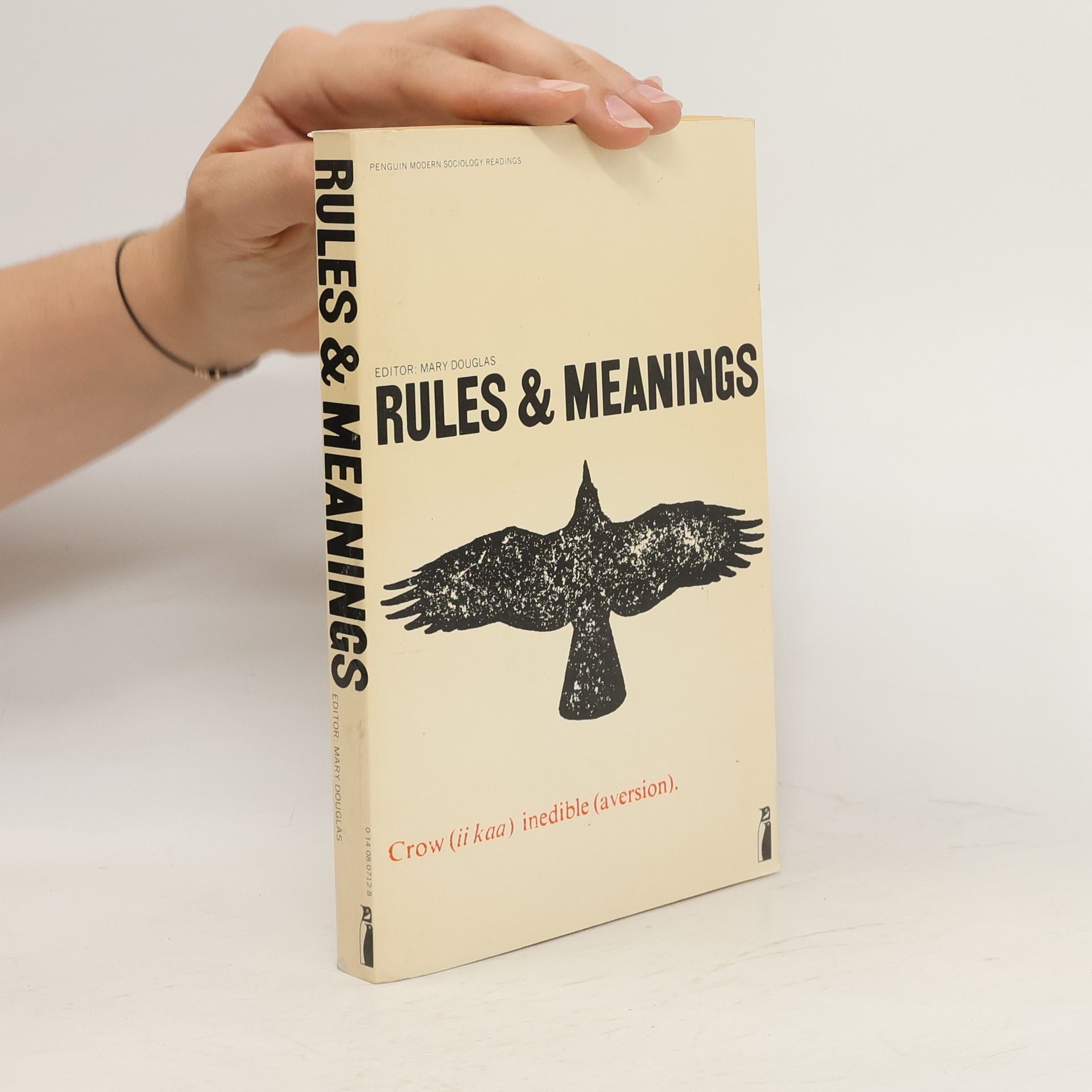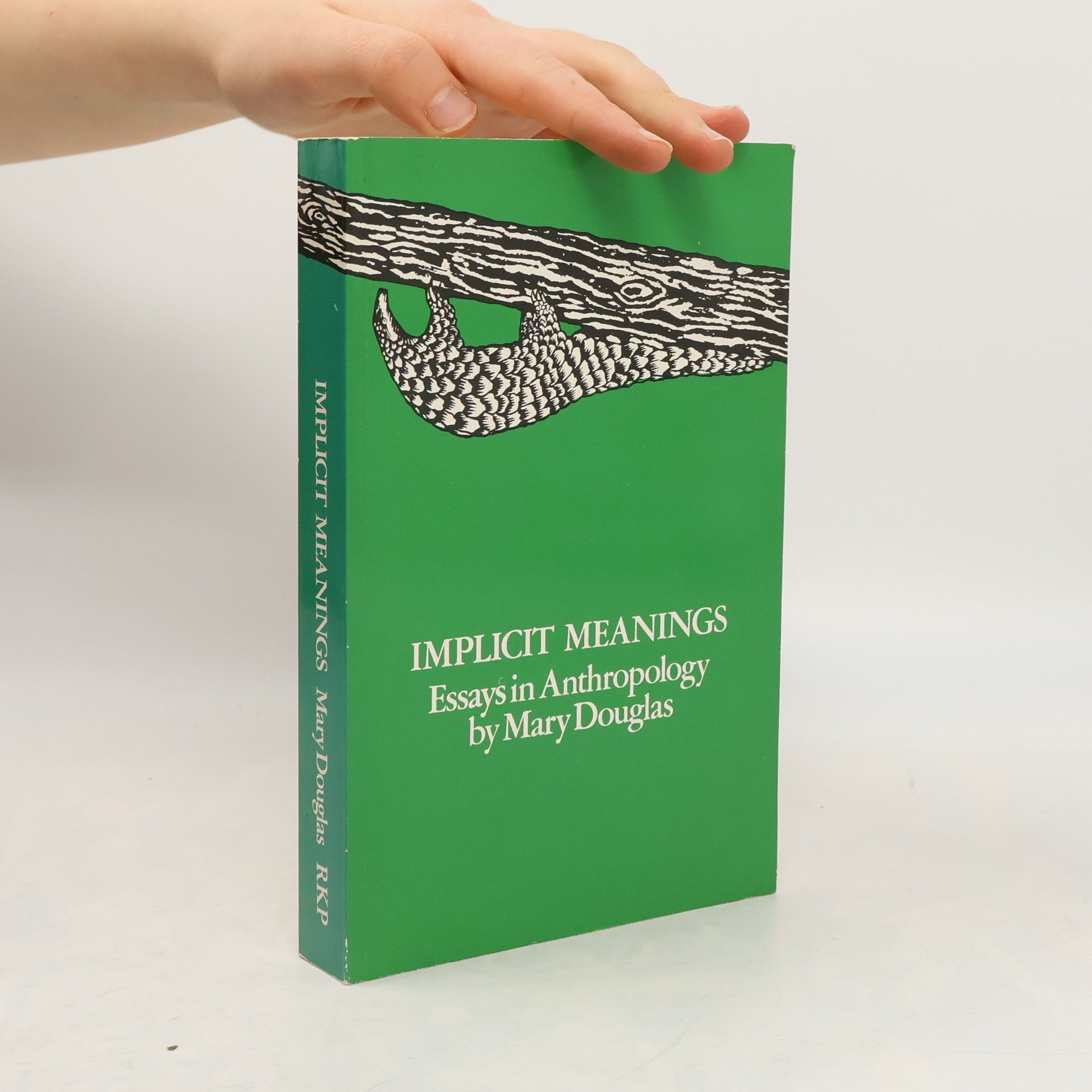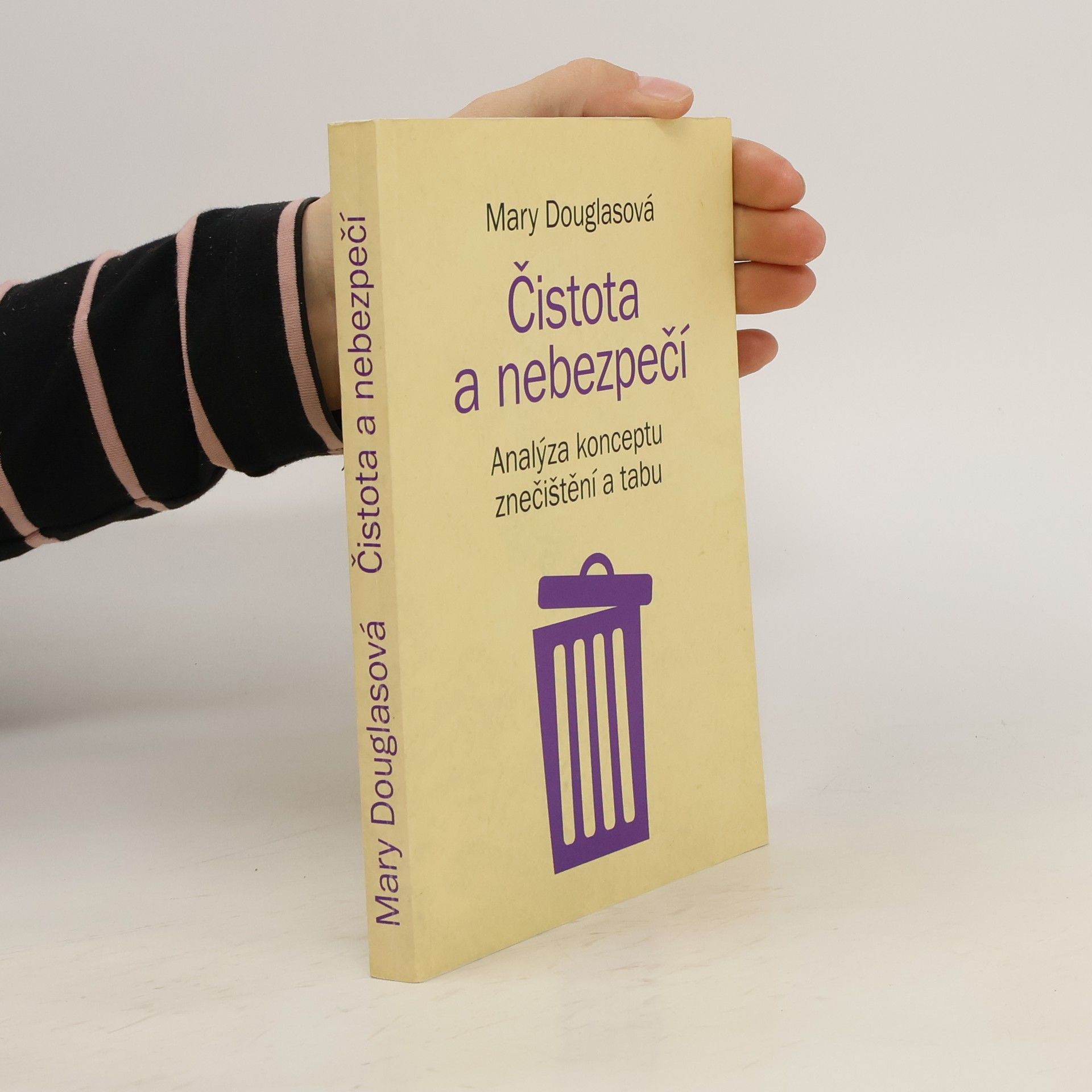Mary Douglas Livres


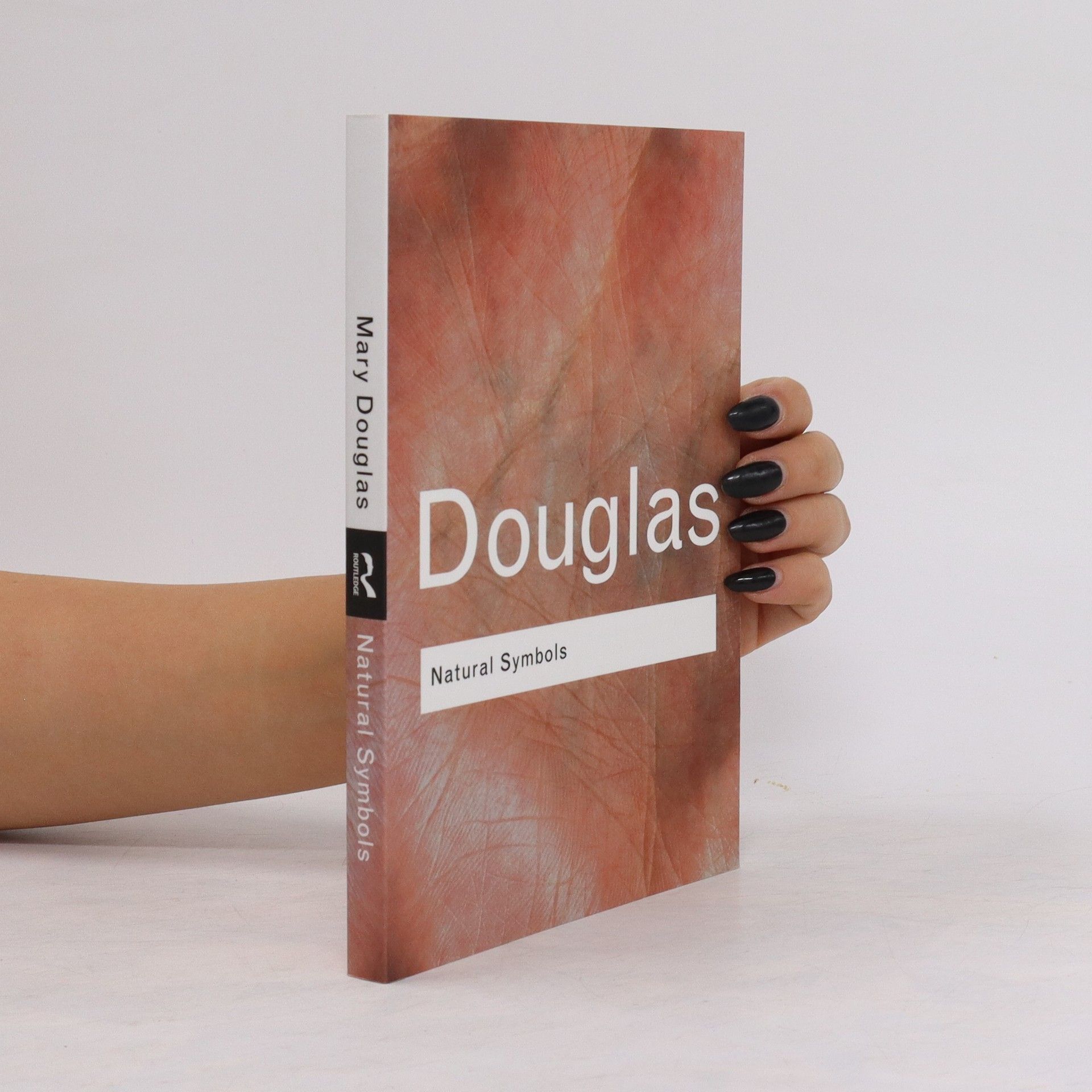
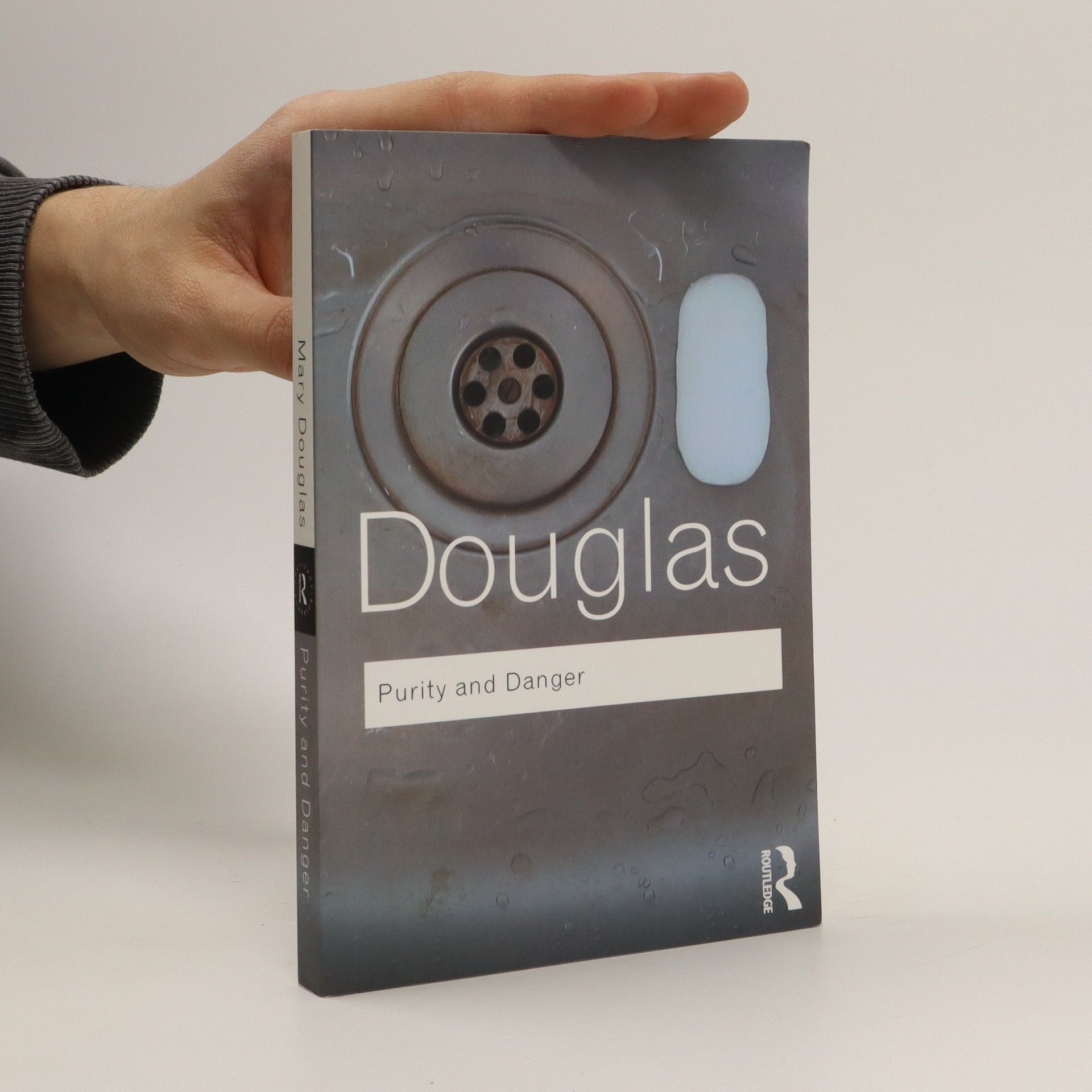
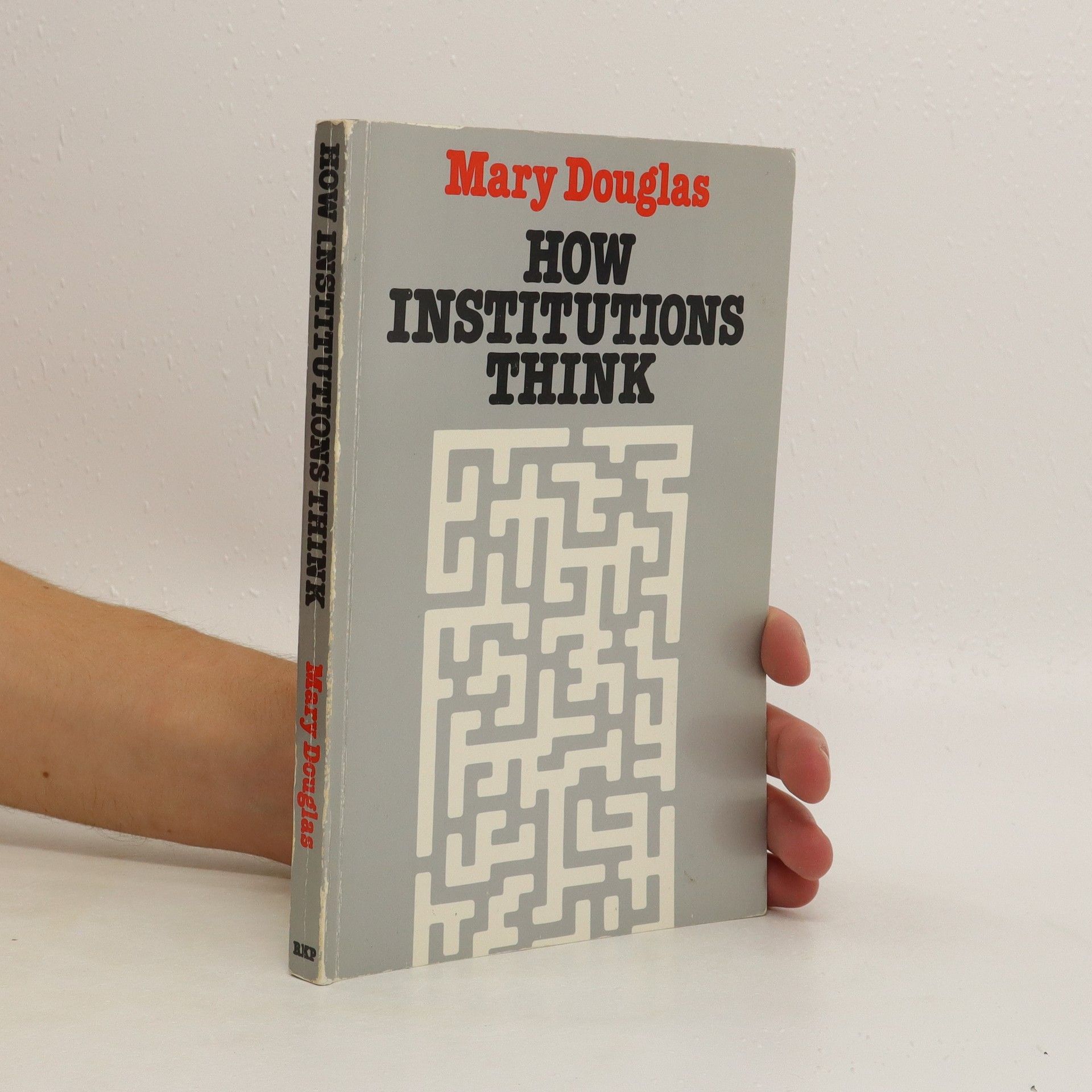

Do institutions think? If so, how do they do it and what thoughts occupy these suprapersonal minds? Mary Douglas delves into these questions as she lays the groundwork for a theory of institutions.
Professor Douglas writes gracefully, lucidly and polemically. She continually makes points which illuminate matters in the philosophy of religion and the philosophy of science and help to show the rest of us just why and how anthropology has become a fundamentally intellectual discipline' - New Society Professor Douglas' book sparkles with intellectual life and is characterised by a concern to understand. Right or wrong, sound or idiosyncratic, it presents a rare and exciting spectacle of a mind at work.' - Times Literary Supplement
Natural Symbols
- 240pages
- 9 heures de lecture
Natural Symbols is one of the most important works of modern anthropology. First published over thirty years ago, the work presaged many of the most controversial areas of intellectual debate, exploring themes such as the social meaning of natural symbols and the image of the body in society and religious cosmology. Bringing anthropology into the realm of religion, Natural Symbols enters into the ongoing debate in religious circles surrounding meaning and ritual. Written against the backdrop of student uprisings of the late 1960s, the book took seriously the revolutionary fervor of the times, but instead of seeking to destroy the rituals and symbols that can govern and oppress, Mary Douglas saw instead that if transformation were needed, it could only be made possible through better understanding. Expressed with clarity and dynamism, the passionate analysis which follows from this remains one of the most insightful and rewarding studies of human behavior that has been written. -- Publisher description.
The Healing Bond
The Patient-Practitioner Relationship and Therapeutic Responsibility
- 256pages
- 9 heures de lecture
This book combines the expertise of practitioners and researchers to address the wide range of debates currently taking place in relation to the politics of the practitioner-client relationship.
Weaving a creative path through the seasons, Entertaining with Longaberger provides inspiration, ideas, recipes, projects, and helpful hints for making holiday events and everyday things just a bit more special for your friends and family.
Focusing on the construction of meaning, this anthology showcases Mary Douglas' efforts to blend anthropological insights with modern philosophical thought. It features influential works by thinkers like Wittgenstein, Schutz, and Husserl, exploring themes such as hidden assumptions, tacit conventions, and the impact of spatial organization on language. By integrating philosophical perspectives on everyday language with anthropological theories of knowledge, the collection offers a unique examination of how meaning is shaped in contemporary society.
Implicit meanings
essays in anthropology
Přední britská antropoložka Mary Douglasová si za předmět dnes již klasické práce Čistota a nebezpečí zvolila analýzu idejí čistoty, nečistoty, znečištění a tabu. Představitelka symbolické antropologie se ve strukturálně koncipované práci zabývá otázkou znečištění jako konstrukce, která se univerzálně objevuje v každé známé společnosti. Na bohatém etnografickém materiálu dokládá, že tato konstrukce slouží k zachování sociálního řádu symbolickým zdůrazněním jevů, které jsou chápány jako nepořádek a nečistota tento řád narušující. Douglasová ukazuje, že je nezbytné zkoumat čistotu, nečistotu, poskvrnění a tabu v širokém sociálním a kulturním kontextu, nikoli jako izolované jevy. Kniha ovlivnila nejen antropologii, ale zapůsobila také v sociologii, filozofii a religionistice.

